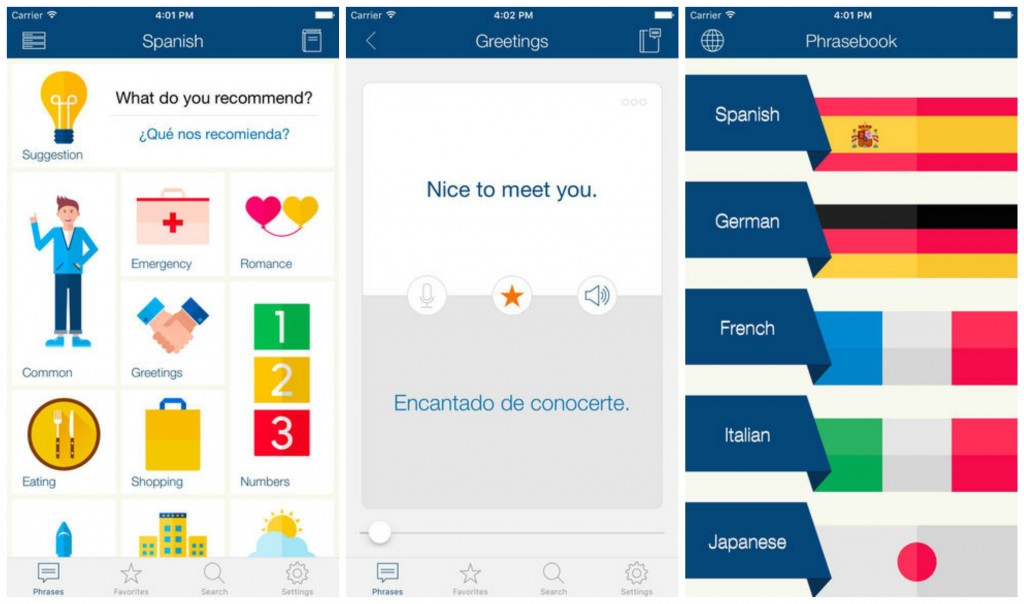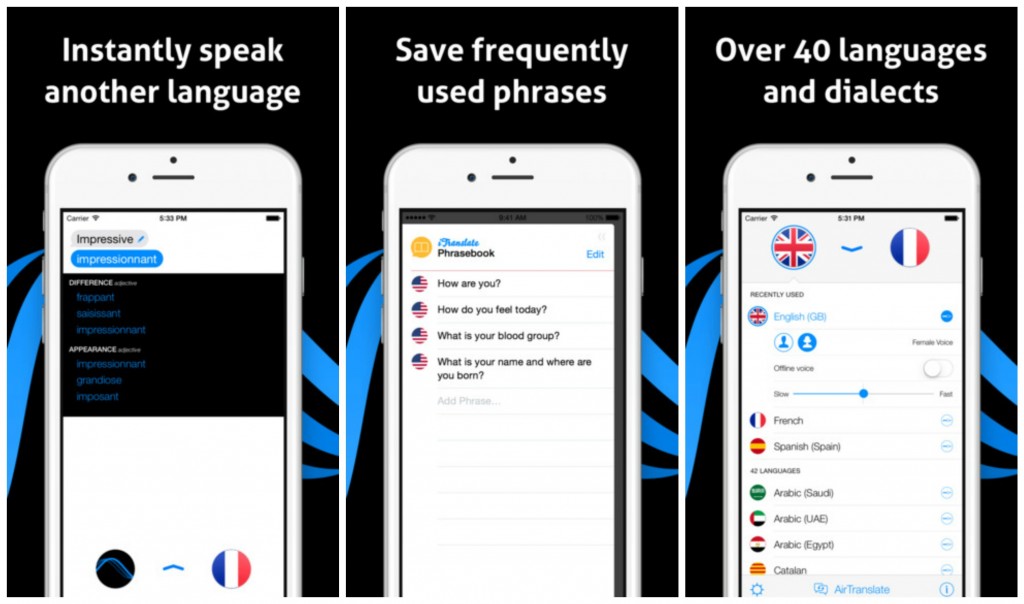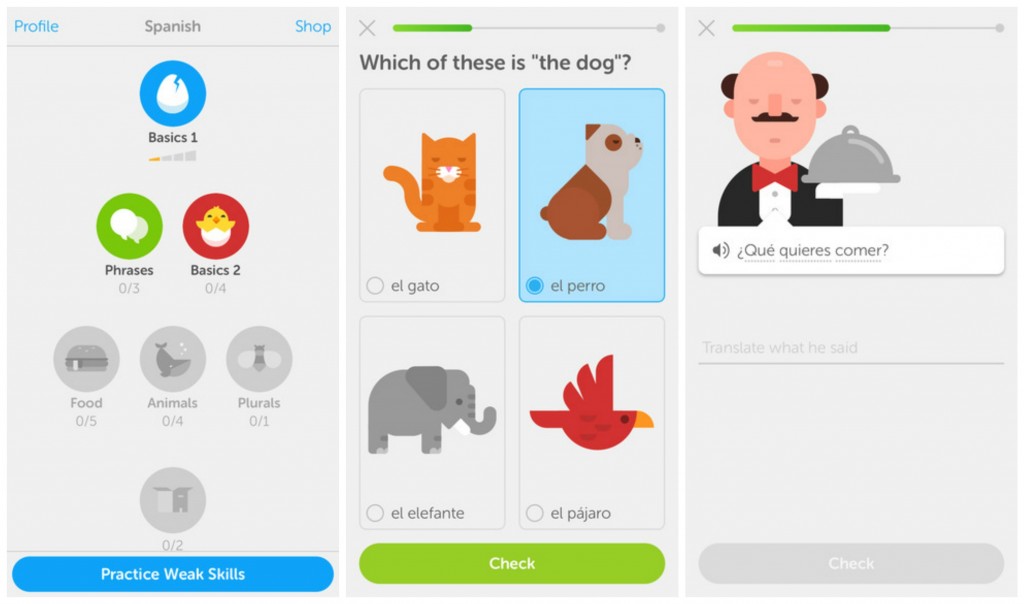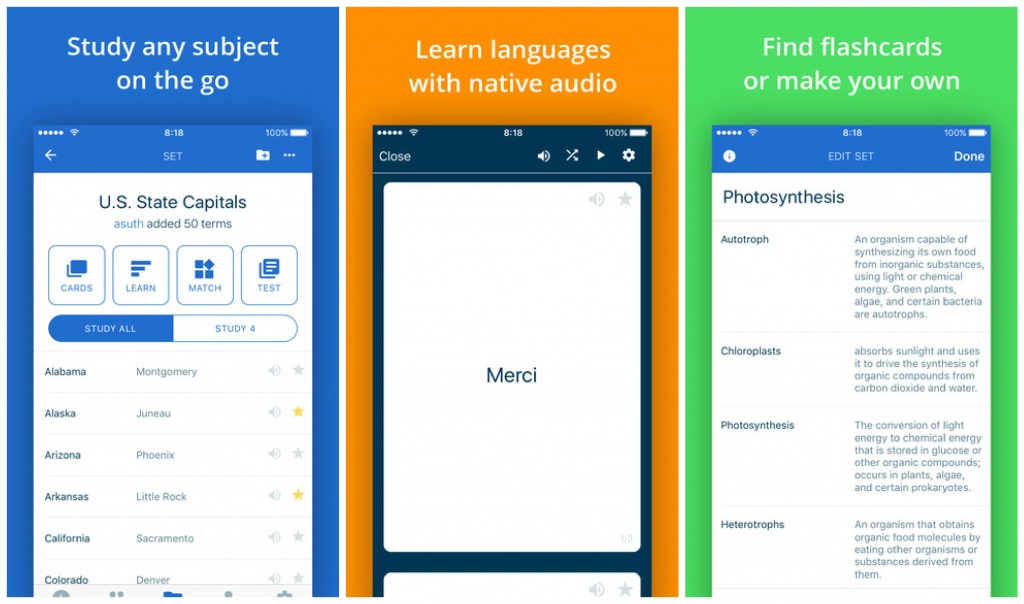How To Learn Another Language

Melanie Mahony has written for Junkee, inthemix, FasterLouder and Crikey.…
How on earth did people travel before the internet? Just imagine, half your precious 23 kilograms of luggage weighed down with guide books, maps and English to ‘X’ dictionaries. While there’s a certain charm in trying to converse with a stranger via facial expressions and sign language while you manically flick through your dictionary, being able to easily communicate while you’re travelling can not only make things less stressful, but far more rewarding.
Whether you’re away for a week in Japan or a six month sabbatical in France, here’s a list of the best apps to help you along the way.
Learning the basics
While mastering the local words for ‘hello’, ‘thanks’ and ‘please’ can be solved with a quick Google search and may well suffice when you’re travelling to a far-away land, committing a few key phrases to memory before you pack your bags may make the all important difference between ordering a serve of Spanish penis (polla) or chicken (pollo) for dinner.
Phrasebook

There’s a number of not so imaginative developers making apps with the same name, but Phrasebook by Bravolol Limited offers common phrases in the most comprehensive range of languages for free – and it works offline. Be sure to make note of the all important Love & Dating section which will come in handy if you happen to fall in love in Paris (Je t’aime) or wish to deter any unwanted advances from a Italian admirer (Lasciami in pace!).
Best for: Memorising set questions and phrases
Free: Yes
Works offline: Yes
Device compatibility: iPhone and Android
Languages: Arabic, German, Spanish, French, Italian, Japanese, Korean, Chinese, Russian, Turkish, Portuguese & Vietnamese.
For getting by when you’re abroad
While knowing how to order a glass of wine is usually the solution to most travel dramas, sometimes you need to tackle more complex things like discussing the meaning of life with your new Argentinian mate, or engaging in a passionate debate with your new Danish friend.
Google Translate
Google Translate offers all the features you need with decent quality too. Like most apps of its kind, it translates typed text word for word (rather than taking into account grammar), meaning it’s probably not going to help you write your travel memoir in Finnish. But in addition to its adequate (albeit improving) voice translation software, one of its star features is the recently acquired Word Lens – a technology that allows you to translate text via your phone’s camera. Just hold your phone up to a street sign or potentially incriminating car rental agreement and you’re sorted.
Best for: Translating basic text and documents
Free: Yes
Works offline: Yes, with downloads
Device compatibility: iPhone, Android and web
Languages: Over 100
iTranslate Voice

As the name suggestions, this app focuses on the live translation of spoken conversations and while most of the main translation apps offer this feature, this one is regarded as the best in the business for its speed and accuracy. In theory, you just speak to your phone in your mother tongue and it will speak back to you in another language instantly – no typing needed.
Best for: Translating real-time conversations
Free: Nope, it will set you back $10.99
Works offline: Yes, with downloads
Device compatibility: iPhone and Android
Languages: Over 40 on offer
For learning a language
Although travel is all about living in the moment, sometimes it’s useful to be able to speak in more than just present tense (“I was in Tokyo” sounds much better than “I am in Tokyo yesterday”). Building vocabulary and learning some grammar so you can express yourself in another language is liberating and best done with a combination of these useful apps and some real life study.
Duolingo, Busuu & Babbel
While they all have points of difference, we’ve grouped these three together because they are all built to help you learn and practice basic vocabulary through pictures, repetition and memory games. Helpful for learning a bunch of common nouns (names of things), verbs (doing words) and adjectives (describing words), the lack of grammar taught means these apps are best used as a foundation for future study. Try all three to start and work out which format engages you most.
Duolingo
Best for: People who like video games
Free: Yes
Works offline: Yes
Device compatibility: iPhone, Android and web
Languages: English, Arabic, Czech, Dutch, French, German, Greek, Hindi, Hungarian, Indonesian, Italian, Japanese, Korean, Polish, Portuguese, Romanian, Russian, Simplified Chinese, Spanish, Traditional Chinese, Turkish, Ukrainian, Vietnamese

Busuu
Best for: Interacting with a community of native speakers
Free: Limited features are free, premium membership starts at $7.50 per month
Works offline: Yes
Device compatibility: iPhone, Android and web
Languages: Spanish, Italian, French, Portuguese, Turkish, Arabic, Polish, German, Russian, Japanese, Chinese
Babbel
Best for: Learning some grammar
Free: No, memberships start at $15 per month
Works offline: Yes
Device compatibility: iPhone, Android and web
Languages: Spanish, German, Italian, French, Portuguese, Swedish, Turkish, Dutch, Polish, Indonesian, Norwegian, Danish, Russian
Additionally…
Language Course
Hate to break it to you, but finishing all the levels in Duolingo won’t make you fluent in another language. If you have the time, studying a language abroad is an amazing way to immerse yourself in a culture and come back from a holiday with more than just some bad tan lines. While not an app, Language Course is the TripAdvisor of language courses, with comprehensive reviews from other students about which schools are best and should be your first stop for choosing where to study.
Dictionary
Unlike the straight forward translation apps, Dictionary by Farlex is one of the few apps to offer definitions and tense conjugation in a range of languages. Important stuff if, for example, you want to use the French word baiser correctly (it has both PG and MA15+ translations, to say the least). If you find the layout of this app a bit messy, then there are plenty of language specific apps (the best of which we’ve kindly listed below) you can use instead.
Best for: Searching definitions and conjugations
Free: Yes
Works offline: Yes, with downloads
Device compatibility: iPhone, Android and web
Languages: Arabic, Chinese, Dutch, French, German, Greek, Italian, Norwegian, Polish, Portuguese, Russian, Spanish & Turkish.
Other great dictionary apps: SpanishDict (iPhone and Android), German dict.cc (iPhone and Android), French Dictionary (iPhone and Android), Dutch Dictionary (iPhone and Android), Portuguese Dictionary (iPhone and Android) and Chinese Dictionary (iPhone and Android).
Quizlet

Did you know that there’s over 270,000 words in the Italian dictionary? Sure, understanding grammar is half the battle but the key to language fluency is memorising vocabulary. Although not exclusively a language app, Quizlet is a study tool that has a massive database of user generated Study Sets with flash cards and quizzes that help you practice (and hopefully memorise) everything from conjugating the Spanish past-tense for ‘to be’ to a list of Hungarian expletives.
Best for: Studying for a test
Free: Yes
Works offline: Yes
Device compatibility: iPhone, Android & Web
Languages: Many
Melanie Mahony has written for Junkee, inthemix, FasterLouder and Crikey. Despite her parents best advice, Melanie spends all her savings on travel instead of a house and never tweets at @melmahony.









